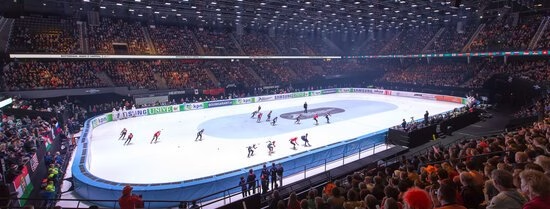It seems self-evident that athletes at the Olympic Games represent a country, but this was not always the case. In an article in newspaper de Volkskrant, professor Gijsbert Oonk explains: "In the early days of the modern Olympics you still had mixed teams. Rowers from England, France, Wales and Germany in one boat. The basic principle was that athletes represented themselves." It was only during the Cold War that top athletes became the calling card of their country and countries began to show off their champions.
But now that more and more athletes have a mixed background, this 'national mould' is starting to wring says Oonk. "Many people identify with multiple countries nowadays. Why should they have to choose a country forever? For some, that is also very uncomfortable."
Flexible sports passport
He advocates the introduction of a flexible sports passport, whereby athletes can switch sports countries every two or four years. They would keep their normal passport if they wanted to, and they would not be entitled to vote, but they could represent the country in sport. And that should apply not only to athletes with dual nationality, but especially all athletes. "I want to go back to the early days when athletes mainly represented themselves. And not necessarily a country."
Sport is also an income
But isn't that weird since a country has invested a lot in an athlete? He responds: "Of course, there is tension there. But you never hear about academics who leave. There is also investment in them. And we also attract talent from all over the world. India, China, you name it. Don't forget that for sportsmen and women there is often an income attached. For them it is just work, who are we to restrict them?”
Identification with athletes
Finally, he says he thinks the identification of spectators with athletes will change. "But that is just part of the world we are in. And I don't think it matters much to the athletes themselves, they just want to compete on the highest possible stage. And that's what sport should be all about, right?"
Read the entire article on Volkskrant.nl (in Dutch)
- Professor
- Related content

